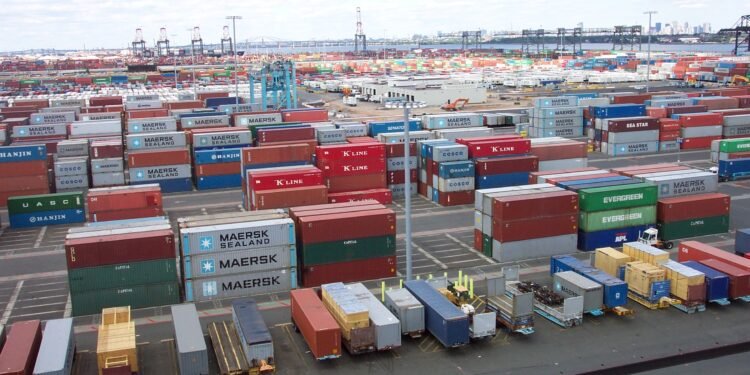On 23 September 2020, at a formal meeting of the Special Session of the Committee on Trade and Development (CTD), WTO members will discuss proposals on enhancing the special and differential treatment for developing countries contained in WTO legal texts.
At the meeting, members will discuss the latest version of ten agreement-specific proposals on special and differential treatment (S&D) tabled by the Organisation of African, Caribbean and Pacific States, the African Group and the WTO’s group of least-developed countries (LDCs), which together comprise the G90.
- Also read: List of companies under CBN investigation for forex infractions
- FinCEN Files: All you need to know about the leaked documents, how big banks enabled financial crimes
The proposals relate to S&D provisions contained in several WTO agreements and decisions on topics including transfer of technology, trade-related investment measures (TRIMS), technical barriers to trade, sanitary and phytosanitary measures, customs valuation, subsidies and countervailing measures and the accession of LDCs to the WTO.
The Special and differential treatment provisions
The WTO Agreements contain special provisions which give developing countries special rights and which give developed countries the possibility to treat developing countries more favourably than other WTO Members.
These special provisions include, for example, longer time periods for implementing Agreements and commitments or measures to increase trading opportunities for developing countries.
These provisions are referred to as “special and differential treatment” (S&D) provisions.
The special provisions include:
- longer time periods for implementing Agreements and commitments,
- measures to increase trading opportunities for developing countries,
- provisions requiring all WTO members to safeguard the trade interests of developing countries,
- support to help developing countries build the capacity to carry out WTO work, handle disputes, and implement technical standards, and
- provisions related to least-developed country (LDC) Members.
The WTO Secretariat has made several compilations of the special and differential provisions and their use. The latest WTO document setting out the implementation of these S&D provisions is in WT/COMTD/W/239.
In the Doha Declaration reached at the WTO ministerial conference in 2001, member governments agreed that all special and differential treatment provisions are an integral part of the WTO agreements, and that these provisions should be reviewed with a view to strengthening them and making them more effective and operational.
More specifically, the declaration (together with the Decision on Implementation-Related Issues and Concerns) mandates the Committee on Trade and Development (CTD) to identify which of those special and differential treatment provisions are mandatory, and to consider the legal and practical implications of making mandatory those which are currently non-binding.
In addition, the Committee is to consider ways in which developing countries, particularly the LDCs, may be assisted to make best use of special and differential treatment.
Monitoring Mechanism
The Bali Ministerial Conference in December 2013 established a mechanism to review and analyse the implementation of special and differential treatment provisions. The mechanism, which will take place in Dedicated Sessions of the CTD, will provide members with an opportunity to analyse and review all aspects of the implementation of S&D provisions contained in multilateral WTO agreements, Ministerial and General Council Decisions — with the possibility to make recommendations to the relevant WTO bodies — aimed at either improving the implementation of reviewed provisions, or improving the provisions themselves through re-negotiations.
Special Sessions of the Committee on Trade and Development
On 1 February 2002, the Trade Negotiations Committee agreed that the mandate from paragraph 44 of the Doha Ministerial Declaration should be carried out by the Committee on Trade and Development (CTD) in Special Sessions.
Negotiations on special and differential provisions take place in the special session of the CTD. The negotiations have resulted in a number of decisions, such as those relating to least-developed countries (LDCs) contained in Annex F to the Hong Kong Ministerial Declaration and the Monitoring Mechanism adopted at the Bali Ministerial Conference.
Reports of the meetings are always issued after each Special Session of the Committee on Trade and Development. They are called “the minutes” of the meeting. These reports are generally available to the public six months after they have been issued.
Written by,
Nnamdi M.


























































